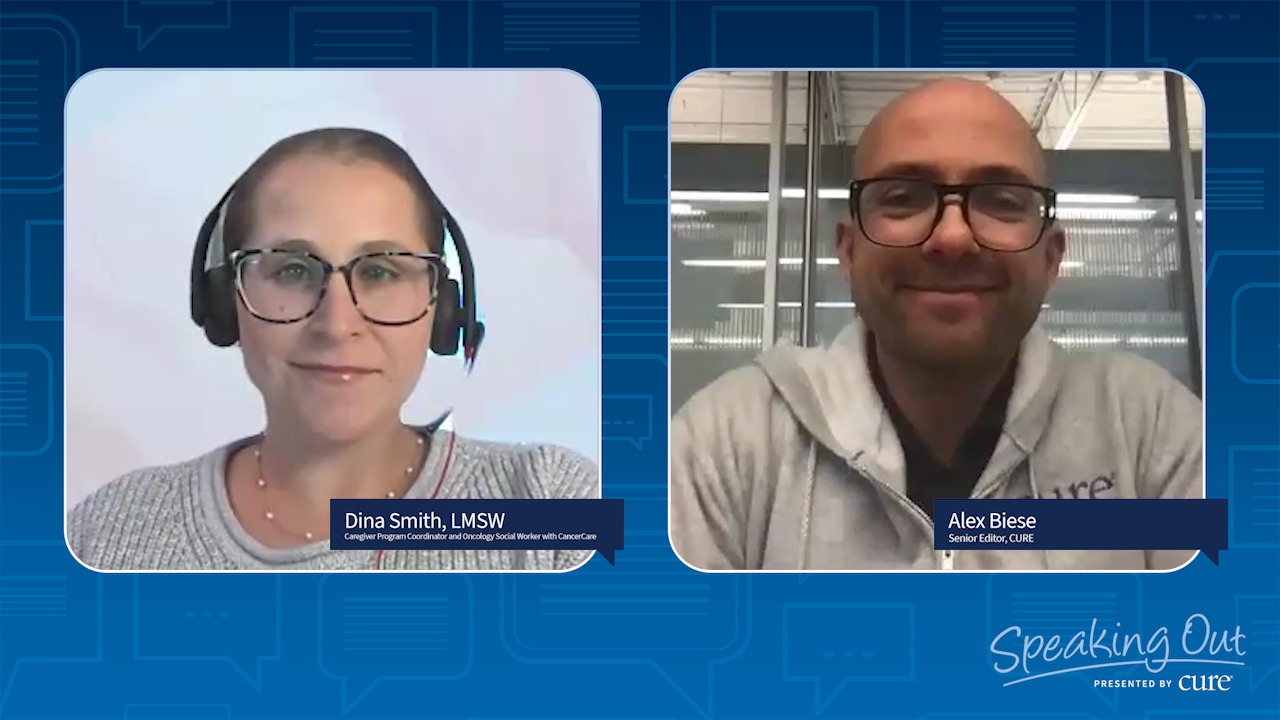- About Us
- Advertise / Support
- Editorial Board
- Contact Us
- CancerNetwork.com
- TargetedOnc.com
- OncLive.com
- OncNursingNews.com
- Terms & Conditions
- Privacy
- Do Not Sell My Information
- Washington My Health My Data
© 2025 MJH Life Sciences™ and CURE - Oncology & Cancer News for Patients & Caregivers. All rights reserved.
You’re ‘Just Human’: When Cancer Caregivers Need to Ask for Help

A nationally-published, award-winning journalist, Alex Biese joined the CURE team as an assistant managing editor in April 2023. Prior to that, Alex's work was published in outlets including the Chicago Sun-Times, MTV.com, USA TODAY and the Press of Atlantic City. Alex is a member of NLGJA: The Association of LGBTQ+ Journalists, and also performs at the Jersey Shore with the acoustic jam band Somewhat Relative.
Caregivers shouldn’t hesitate to ask for help when it comes to coordinating care for a loved one.
For caregivers of loved ones with cancer, communication is key when it comes to coordinating care.
“Maybe your loved one’s values and goals and their way of wanting to go about their treatment could be vastly different than what you think is best, and this is where communication comes in handy, and is so vital here,” said Dina Smith, caregiver program coordinator and oncology social worker with CancerCare, in an interview as part of the “Speaking Out” video series.
“Because you know your loved one may think that you're super-human,” Smith said. “And while you know, yeah, you probably are, because you are a caregiver, [but] at the same time, you're also just human. You need a break every now and then. So, if it's getting to be too much, I always encourage caregivers to have an open and honest and calm conversation with your loved one about what you feel like you can maintain, but what you also feel is not sustainable.”
Disorganization, Smith said, is a common theme when it comes to the challenges around coordinating cancer care for a loved one. Fortunately, she explained, there are a number of organizational tools designed to streamline and simplify communication, including web platforms such as Lotsa Helping Hands and My Cancer Circle.
“These are safe websites to use that will maintain your loved one’s confidentiality all while you're able to invite your friends and family to that online portal section, that profile that you're making for your loved one, where you can share updates about your loved one’s treatment progress,” Smith explained.
In addition to providing updates about their loved one’s needs and condition, caregivers shouldn’t hesitate to ask for help for themselves, Smith noted.
“Reach out for help if you need it,” she said. “If you don't ask, you may not know who can help, because maybe no one is offering to assist. But this is not necessarily a bad thing. Oftentimes people don't want to disrupt you, because maybe they think that you have 1,000,001 things going on and they think, ‘Oh, you know, they'll just reach out to me if they need anything.’ More than likely that's the case, rather than them not be not wanting to help you, and that's why there is radio silence. So, I always encourage caregivers to send a quick text, make a quick phone call, see who can help out, because you yourself also might need a break.”
In addition, Smith suggested connecting with hospital social workers or cancer-focused organizations for help figuring out transportation services or coordinating other necessary resources.
For more news on cancer updates, research and education, don’t forget to subscribe to CURE®’s newsletters here.
Related Content:




